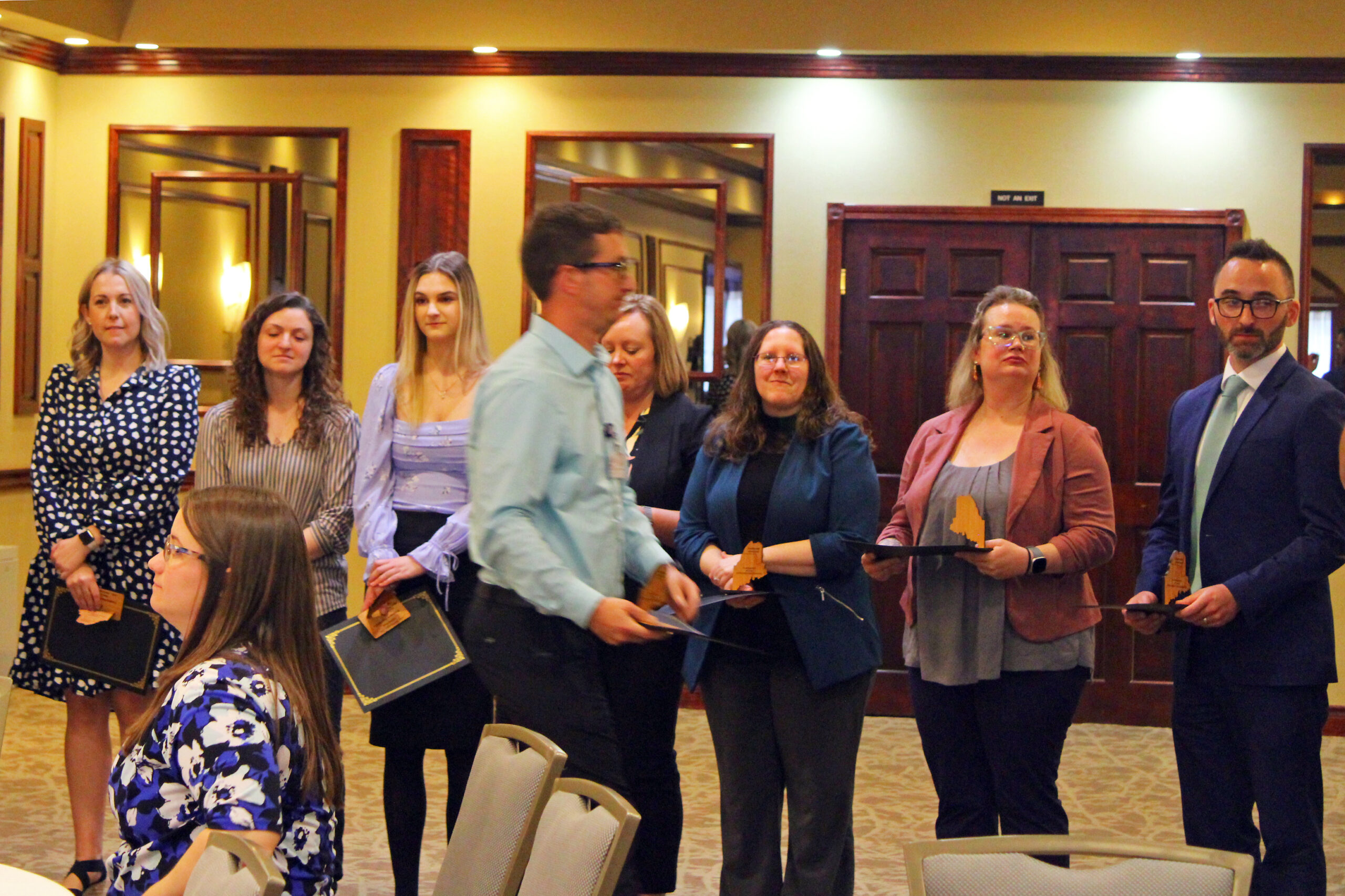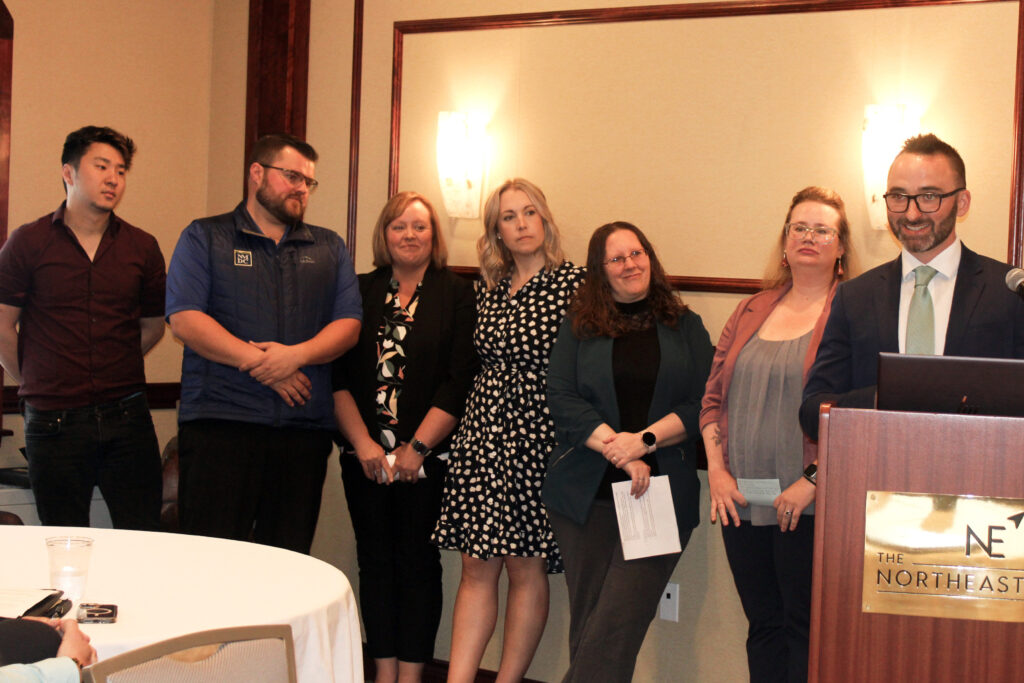
PRESQUE ISLE, Maine — An expanded bus service and a housing trust could help attract workers to northern Maine, according to graduates of a professional development course.
Leadership Aroostook is led by Husson University and the Aroostook Partnership, a non-profit organization funded by businesses to promote economic development. The 2024 class of 13 local professionals delivered final presentations and received diplomas Thursday in Presque Isle.
The group tackled two major barriers to attracting more workers to The County: the lack of affordable housing and inadequate transportation. As Aroostook’s population ages, that means fewer people in the workforce. Businesses won’t come to northern Maine if there aren’t workers, and without places to live or a way to get to work, the workers won’t come.
“We need 2,520 homes right now in Aroostook County,” participant Jessica Atkinson said. “So do you build houses for people so they’ll come, or build them when they get here?”
Like the line from “Field of Dreams,” her group’s consensus was, “If you build it, they will come.”
They proposed creating an Aroostook County Home Ownership Trust, modeled after the Island Housing Trust on Mt. Desert Island.
The Island Trust provides year-round, affordable housing to people who work there, with both rental and ownership opportunities, according to its website.

That community faced a similar problem of people who couldn’t afford to live where they worked, Abbey Clair said.
The proposed trust would require that one adult in the home work for a local business, and that the home be their year-round residence, Clair said. That would ensure their investment in the community.
The group also suggested a senior housing component for older people who wish to downsize but find few options. Building affordable duplexes for older residents who choose to move could allow them to sell their homes, adding to the housing market for workers.
Also in the group were Janet Bosse, Nicole Cote, Daniel Kim, Jared Tapley and Jonathan Thompson.
Group two proposed a plan to get employees to work: an Aroostook Workforce Connector bus program that would serve Caribou, Presque Isle, Easton and Mars Hill, where the bulk of local industry operates.
They studied the Aroostook Regional Transportation System in Presque Isle, the Bangor Community Connector and a similar system in Portland. Maine Department of Transportation data indicated the costs per passenger were highest in Aroostook at $80 per passenger, compared to $10 a passenger in Bangor.
Through an online survey, the group learned most people without their own transportation would choose a public bus or van over Uber or carpooling. Those who did not have a preference did not suggest alternatives, participant Hannah Bushey said.
The group also projected costs and funding for a connector system. With two 12-passenger vans, the initial cost would be $402,000, Ben Willey said. Funding would come from $321,600 in grant funds and $80,400 in matching money from Aroostook Regional Transportation.
To keep such a system viable, the projected $210,000-a-year cost could be met by municipal contributions, funds from employers, rider fares and the sale of advertising on the buses themselves.
As they were exploring the bus idea, the group learned the Aroostook Regional Transportation System was working with the MDOT to establish a Star City Connector. They invited the Leadership Aroostook group to their meetings, Willey said.
Others in the group were Kayla Brown, Corey Pelletier, Eva Hayes and Jasmine Rockwell.
Marie Hansen, dean of Husson University’s College of Business, congratulated participants on their presentations and handed out diplomas. She and other Husson instructors traveled north each month to lead class sessions.
Aroostook County has great potential, said keynote speaker Scott Dionne, Aroostook Partnership president and CEO. He encouraged the new graduates to find purpose on every step of their journey to move The County forward.
“We have so much potential in Aroostook County, but we have a lot of threats. We’re an island unto ourselves in the rest of Maine,” he said. “Ultimately, we’re the ones who are going to effect change.”







